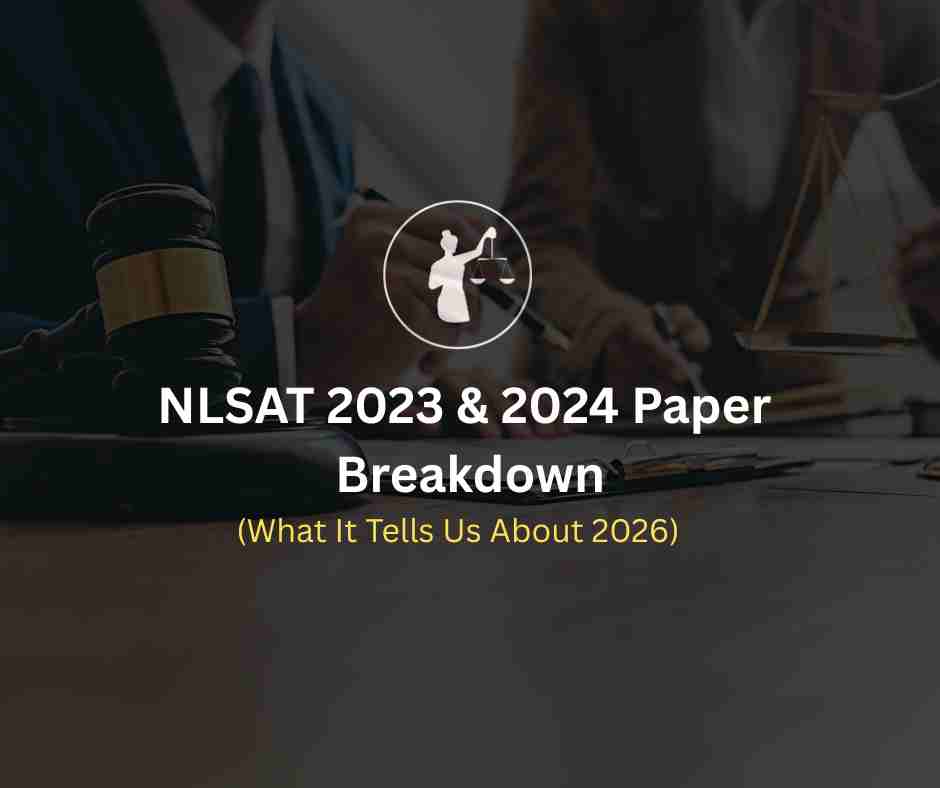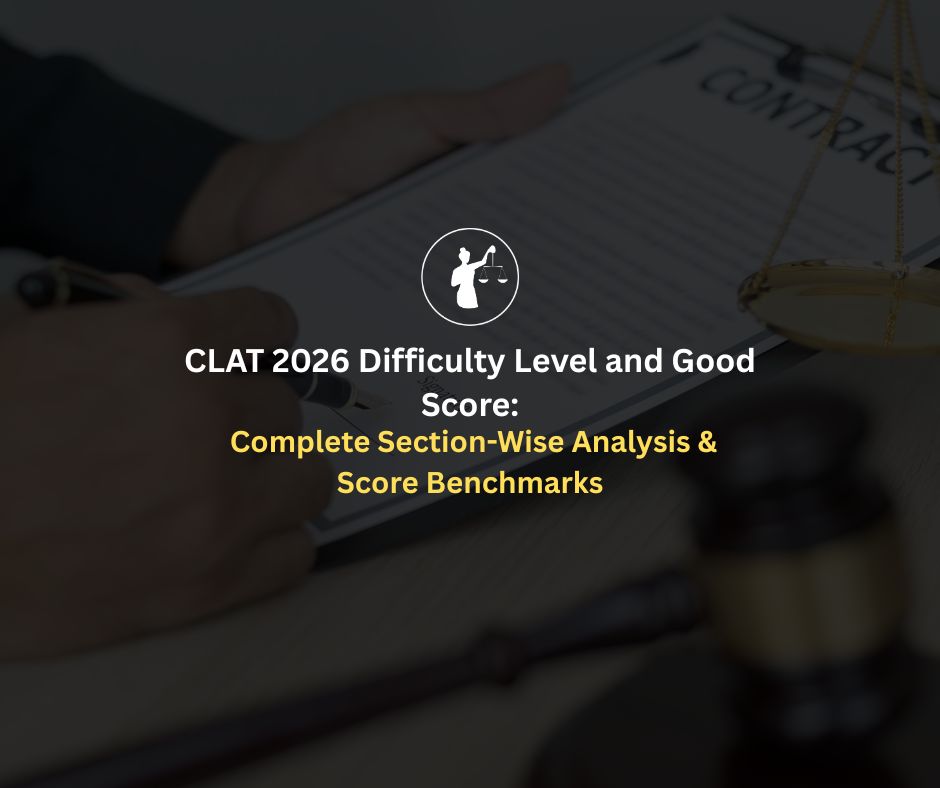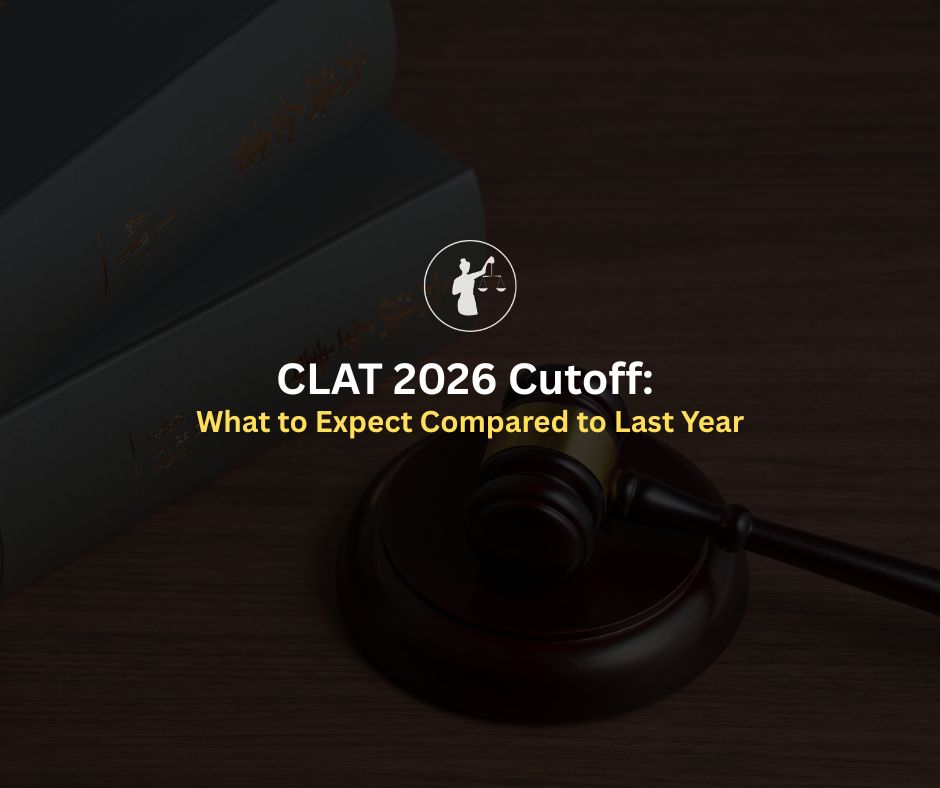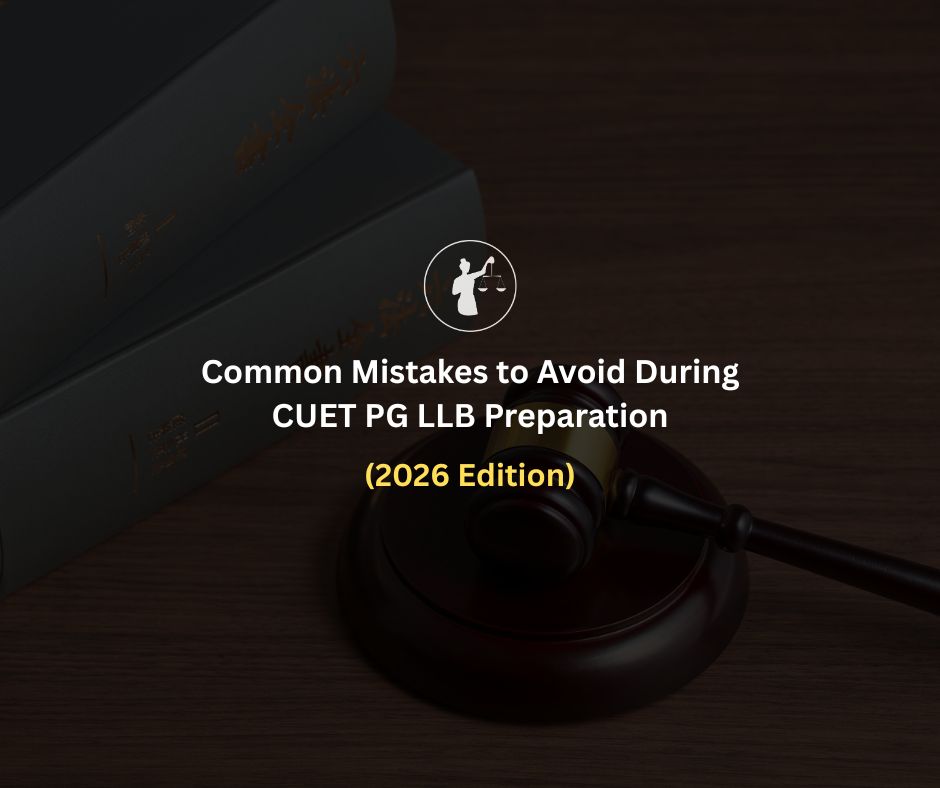
If you're aiming for NLSAT 2026, understanding how the exam has evolved in 2023 and 2024 is essential. These previous year papers are not just a retrospective look, they're a strategic lens into what NLSIU tests, how it tests, and what might come next.
In this guide, the National Legal Training Institute (NLTI) breaks down the 2023 and 2024 NLSAT papers, uncovers patterns, and shows you exactly how to use NLSAT past papers as part of your preparation journey.
The NLSAT follows a two part format:
Part A (Objective):
75 MCQs testing Reading Comprehension, Critical Reasoning, Current Affairs, and Legal Awareness.
Part B (Subjective):
Essay and legal reasoning/problem-solving, evaluating writing clarity, logical structure, and legal thinking
By analyzing NLSAT previous year papers (2022 to 2024), aspirants can:
Spot changes in question types and section weightage
Recognize the shift toward more abstract, inference-based passages and analytical essay prompts
Understand how NLSIU’s focus is evolving year by year
For instance, the 2024 paper showed a surge in Part A difficulty, especially in Critical Reasoning and GK, while Part B leaned toward socio-legal essay themes.
Read More : NLSAT 2026 Difficulty Trends
The trend is clear: NLSAT is becoming more analytical, especially in Critical Reasoning and Essay writing, requiring more than just content it needs clear thinking under pressure.
Reading Comprehension (RC)
More abstract, legal policy oriented texts
Focus on tone, inference ,and argument structure
Past papers help identify how questions are framed and distractors used
Critical Reasoning (CR)
~30% of Part A
Common question types: assumption, strengthen, weaken, conclusion, paradox
NLSAT 2023 and 2024 leaned heavily on editorial-style reasoning
GK and Legal Awareness
Heavily current affairs based, especially around legal policy and governance
Legal judgments and constitutional developments from Feb to March often featured
Analytical Essay Writing
Requires clear reasoning, balanced views, and structured articulation
Essay prompts in 2023 and 2024 included:
Should domestic work be paid?
Should social media be banned for minors?
Legal Case Analysis (Part B)
Not rote legal; focuses on reasoning through fact situations
Core concepts seen in past papers:
Freedom of Speech
Data Privacy
Negligence
Right to Protest
Read More : How NLSAT 2026 Differs from CUET PG & Other LLB Exams
How to Use NLSAT Past Papers for Effective Preparation
Time yourself: 90 minutes for Part A, 60 minutes for Part B
Use OMR-like sheets or digital tools to replicate test format
Practice writing full essays and legal reasoning answers in long-form
Keep a mistake log: track where you go wrong (RC misread, logic errors, GK gaps)
Revisit weak areas every 10–15 days using that log
Look at past patterns to predict common themes in upcoming papers
Past paper analysis reveals that NLSAT avoids technical legal jargon. Instead, it wants you to think like a legally aware citizen.
Use previous year case problems to build your logical frameworks
Focus on “what would a reasonable person conclude?” more than “what does the law say?”
Past essay questions help you experiment with:
Hooks (quotes, questions, scenarios)
Logical progression: Issue → Arguments → Counterpoints → Conclusion
Time management in writing 400–500 word essays under 30 minutes
In the final 4 to 6 weeks before NLSAT 2026:
Re-attempt the 2023 and 2024 papers under exam settings.
Focus on time per section and pressure handling.
Isolate question formats or concepts that still trip you up.
Key Observations
Part A:
Becoming more reasoning-heavy. Reading speed and logical processing are essential.
Part B:
Demands clarity, balance, and structure. Abstract themes require real-world grounding.
GK:
Static knowledge is less useful. Focus on legal current affairs, particularly from Jan–March.
Themes Repeat:
Essay formats and logic questions tend to reappear with variations. Recognize and practice these early.
Read More : NLSAT 2026 Analytical Ability
NLSAT is not about legal knowledge. It’s about legal thinking. And the best way to learn how to think like NLSIU wants? Study their past questions. Understand their priorities. Mirror their logic.
Past papers are your blueprint to mastering the NLSAT exam preparation process. With focused analysis, they evolve from simple practice tools into strategic assets helping you predict, prepare, and perform.
FAQs on NLSAT Previous Year Papers
1. How many NLSAT previous year papers should I solve?
All four available papers (2022–2025). Ideally attempt each twice once for simulation, once for analysis.
2. Where can I access official NLSAT past papers?
You can access previous NLSAT papers from the official NLSIU website or from NLTI.
3. Can I prepare for NLSAT without coaching using past papers?
Yes. Many NLSAT toppers have self-studied using past papers, newspaper reading, and structured writing practice.
4. How is NLSAT different from CLAT or AILET?
NLSAT focuses on reasoning and writing, not memorization. It’s a test of analytical aptitude, not legal trivia.
5. When should I start solving past papers before or after finishing the syllabus?
Use them throughout: early for understanding the pattern, mid-way for diagnosis, and in the final phase for mock testing.





